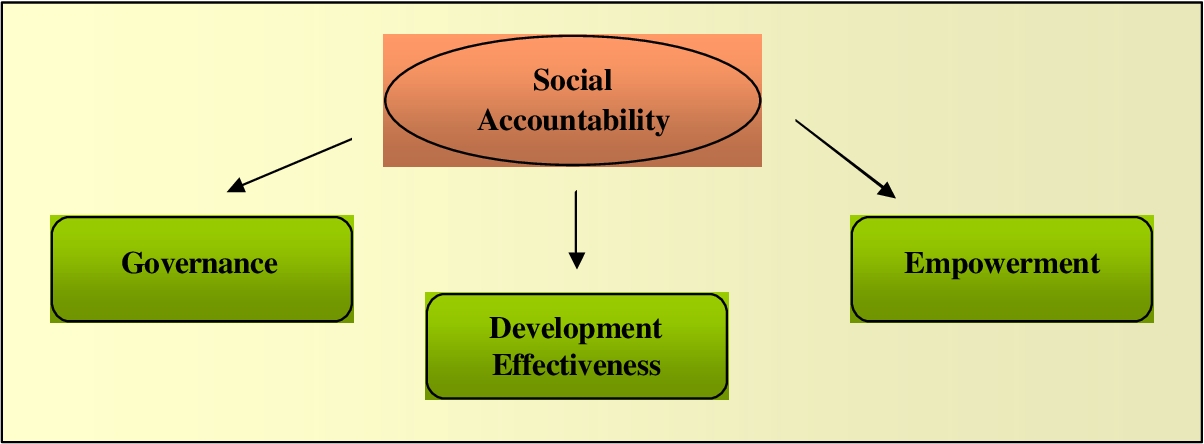Governance
Social Accountability
- 25 Sep 2021
- 4 min read
Why in News
Recently, a State-wide campaign has been launched in Rajasthan for demanding passage of the social accountability law in the next Assembly session.
- In 2019, a committee under the chairmanship of the former state election commission, Ram Lubhaya was constituted to advise the government on the drafting of the Social Accountability Bill and draft was submitted by the Committee in 2020.
- The Rajasthan Guaranteed Delivery of Public Service Act, 2011 and The Rajasthan Right to Hearing Act (2012) have already been around but they were repealed due to some major issues.
Key Points
- Social Accountability:
- It has been defined as an approach towards ensuring accountability that relies on civic engagement, i.e., in which ordinary citizens and citizen groups participate directly or indirectly in exacting accountability.
- In a public sector context, social accountability refers to a wide range of actions and mechanisms that citizens, communities, independent media and civil society organizations can use to hold public officials accountable.
- The effectiveness and sustainability of social accountability mechanisms is improved when they are institutionalized. This involves two things:
- The state as a ‘willing accomplice’ in the broader accountability project, needs to render its own “internal” mechanisms in a way that makes it structurally amenable to accountability.
- The state needs to identify and adopt mechanisms to facilitate and strengthen civic engagement and citizen voice.
- Components of social accountability practice include collection, analysis and dissemination of information, mobilisation of public support, advocacy and negotiation for change.
- Social audit is a tool for social accountability and transparency.
- Major Principles of Social Accountability:
- Jankari (Information)
- Bhagidari (Involvement and participation of citizens)
- Karyawahi (Time bound action)
- Suraksha (Protection of Citizens)
- Sunwai (Citizen's right to be heard)
- Janta Ka Manch (Collective Platform)
- Prasar (Report Dissemination)
- Need:
- There are countless citizens who are suffering from an inability to access their rights and have their complaints redressed in a time-bound manner, while there was “no accountability of errant government officials’.
- Significance:
- It empowers every person to hold the government institutions and officials accountable to them to deliver their rights as citizens.
- It raises awareness about the law and takes up a sustained advocacy for passage of the Bill in the next Assembly session.
- The mechanism for redressing grievances will start from village panchayats and involve public hearings at the block level.
- It can contribute to improved governance, increased development effectiveness through better service delivery, and citizen empowerment.
- Examples of Social Accountability Practices in India:
- Participatory Planning and Policy Formulation (Kerala)
- Participatory Budget Analysis (Gujarat)
- Participatory Expenditure Tracking System (Delhi, Rajasthan)
- Citizens’ Surveys/Citizen Report Cards (Bangalore, Maharashtra)
- Citizen Charters (Andhra Pradesh, Karnataka)
- Community Scorecards (Maharashtra, Andhra Pradesh)







